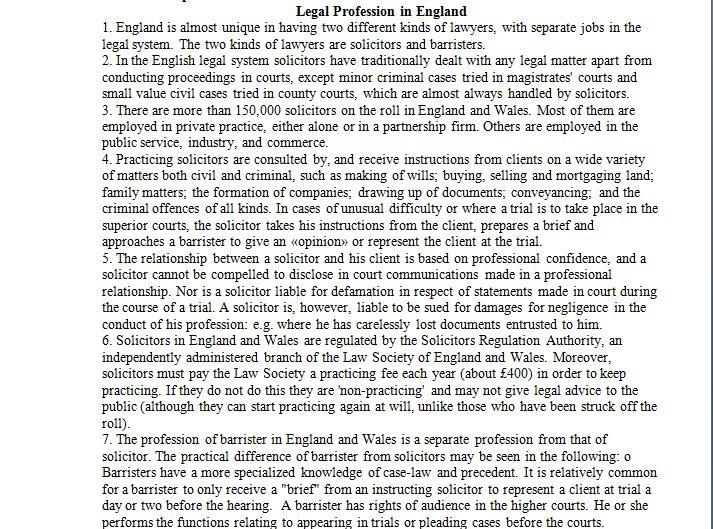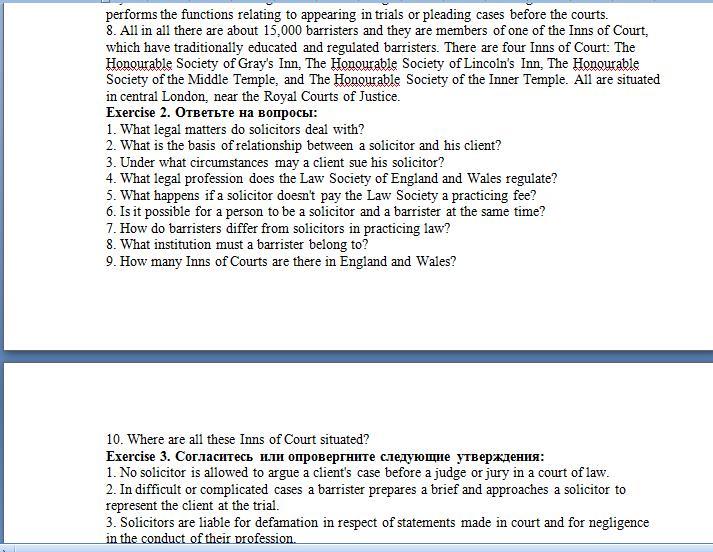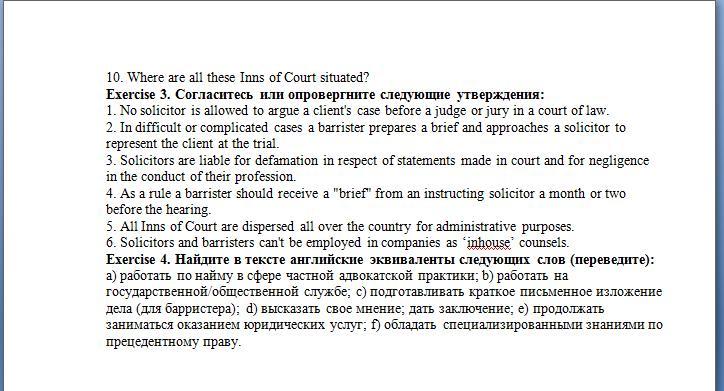Нужно сделать задания



Ответы
Ex. 2
1 Solicitors deal with making wills, buying, selling and mortgaging land; family matters, formation of companies, etc.
2 The relationship between a solicitor and his client is based on professional confidence.
3 A client may sue his solicitor for damages for negligence in the conduct of his profession (e.g. if the solicitor has carelessly lost documents entrusted to him).
4 The Law Society of England and Wales regulate solicitors.
5 If solicitors don't pay it, they are 'non-practicing' and may not give legal advice to the public.
6 No, it's impossible. The profession of barrister in England and Wales is a separate profession from that of solicitor. (*в тексте этого нет, но вам на заметку: It is, however, possible to hold the qualification of both barrister and solicitor at the same time. )
7 Barristers represent their clients at trial and perform the functions relating to appearing in trials or pleading cases before the courts.
8 A barrister must belong to one of the Inns of Court.
9 There are four Inns of Court in England and Wales – Gray's Inn, Lincoln's Inn, Inner Temple and Middle Temple.
10 The four inns are located in central London.
Ex. 3
1 It's true.
2 No, it is a solicitor who prepares a brief and approaches a barrister to represent the client at the trial.
3 A solicitor isn't liable for defamation in respect of statements made in court but he is liable for negligence in the conduct of his profession.
4 No, it is wrong. A barrister receives a brief from an instructing solicitor a day or two before the hearing.
5 No, they aren't. All Inns of Court are located in central London.
6 Yes, they can. Solicitors and barristers can be employed in companies as 'inhouse' counsels.
Ex. 4
a) to be employed in private practice
b) to be employed in the public service
c) to prepare a brief
d) to give an opinion
e) to keep practicing
f) to have specialized knowledge of case-law and precedent